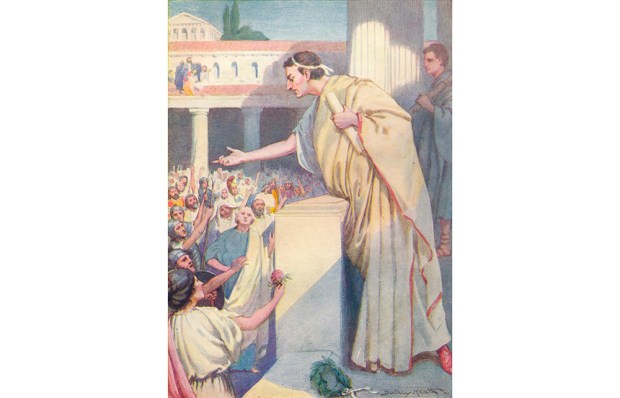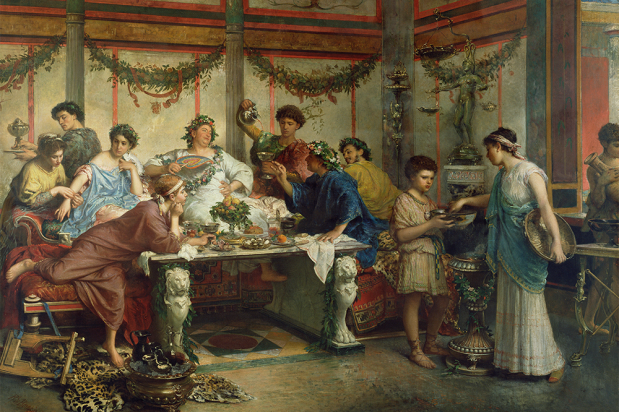World Mental Health day raised again the issue of suicide, still regarded as happening only among those ‘whose balance of mind is disturbed’. Not necessarily, Romans would have argued.
For Romans the manner of one’s death was as important as that of one’s life. As Seneca said, ‘Like a story, the important thing about life is how it is played out. It does not matter where you stop. Stop wherever you want to, but just attach a good ending.’ On his deathbed the emperor Augustus invited those gathered round him to applaud him for acting well his part in life’s comedy.
The key was to face death like a man, or a woman. Lucretia won everlasting fame when she committed suicide after Sextus Tarquinius raped her. Arria showed her condemned, but hesitant, husband how to die, saying ‘Look, it doesn’t hurt,’ as she stabbed herself. Cato the Younger, bitter enemy of Julius Caesar, killed himself rather than allow Caesar to ‘forgive’ him. Seneca praised three gladiators who, rather than killing others, killed themselves, one by suffocating himself with the sponge with which Romans wiped their bottoms (‘that really was a way to tell death to get stuffed’). Seneca suggested one should take action before physical incapacity set in so that one would not die ‘lying there, inert and helpless’.
Death brought as much anguish to the living as it does to us, but for Romans there was no modern notion that death and ageing were disastrous aberrations of nature. Typical epitaphs suggested the dead were very relaxed about it all: ‘We are all going the same way’; ‘Live for the day, because there is nothing else’. One, celebrating freedom from arthritis, starvation and debt, exclaimed ‘In fact, my lodgings are permanent, and free!’; another imperiously dismissed the whole phenomenon — non fui, fui, non sum, non curo (‘Wasn’t, was, am not, don’t care’). Take that, Grim Reaper.
Got something to add? Join the discussion and comment below.
Get 10 issues for just $10
Subscribe to The Spectator Australia today for the next 10 magazine issues, plus full online access, for just $10.
You might disagree with half of it, but you’ll enjoy reading all of it. Try your first month for free, then just $2 a week for the remainder of your first year.













Comments
Don't miss out
Join the conversation with other Spectator Australia readers. Subscribe to leave a comment.
SUBSCRIBEAlready a subscriber? Log in